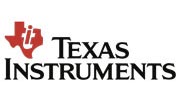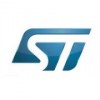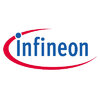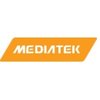Filter interviews by
Carl Zeiss Design Engineer Interview Questions and Answers for Experienced
Carl Zeiss Design Engineer Interview Experiences for Experienced
1 interview found
(2 Questions)
- Q1. Project related
- Q2. Image processing
Top trending discussions






Interview questions from similar companies
I applied via Campus Placement and was interviewed before Jan 2021. There were 3 interview rounds.
(1 Question)
- Q1. What is a cache? What does tag used for in a cache?
- Ans.
A cache is a high-speed data storage layer that stores frequently accessed data to reduce access time. A tag is used to identify the location of data in the cache.
Cache is a temporary storage that holds frequently accessed data
It reduces the access time by providing faster access to data
Tag is used to identify the location of data in the cache
Tag is a part of the cache memory address
Cache can be implemented in hardware...
C Coding questions
(3 Questions)
- Q1. What is your family background?
- Q2. What are your strengths and weaknesses?
- Q3. Tell me about yourself.
Interview Preparation Tips
Skills evaluated in this interview

Senior Engineer Interview Questions & Answers
TDK India Private Limitedposted on 22 Apr 2021
I applied via Naukri.com and was interviewed in Oct 2020. There were 4 interview rounds.
Interview Questionnaire
1 Question
- Q1. I can not disclose the questions but definitely it was a level up than I expected
Interview Preparation Tips
Interview Preparation Tips
Experience: Questions were from digital Electronics which included realization of counters using JK FF,Sequence detector,Boolean expression reduction,One shot and drawing waveforms of some digital circuits.Questions were also their from pipelinig,finding out MIPS,power consumption of two processors,Small signal analysis of MOSFETs,Buffer using CMOS ,finding out the type of filter given block diagram(control theory).Questions were easy and required step by step realization.
Tips: Prepare digital Electronics very well as it has 50% weightage in paper. Pipelinig is important. Some basics concepts of CMOS is very necessary.
Duration: 1hr 15 min minute
Total Questions: 12
Round: Technical Interview
Experience: First they asked to introduce yourself.
Then they asked about projects & Internship.
STA,EEPROM,EPROM,DRAM,SRAM,CACHE Memory,Pipelining,DMA was asked in depth.
Difference between clock skew and Jitter.
Asked whether I know any Hardware Languages.
XOR gate using 2:1 MUX.
Gave a waveform,had to realize using DFF and considering the delay.
Tips: Study STA very well.
Questions will be asked in depth from any topic.
Round: HR Interview
Experience: Family Background
Why NXP
Hobbies
Skill Tips: Study Digital Electronics very well
Skills: Analog Electronics, Microprocessor, Vlsi Basics, Digital Circuits
College Name: BIT Mesra
Interview Preparation Tips
Experience: Questions were from Digital Electronics,Microprocessors and some from CMOS.
50% Digital Electronics.
1 X Output waveform drawing from circuit of FFs & gates
1 X Realize inverter from given two blocks
1 X CMOS implementation of gates
1 X Realize digital circuit for given waveform
1 X MIPS & Pipelining
1 X Processors power Dissipation calculation
1 X Small Signal analysis of CMOS
1 X Compare two given buffers circuits(CMOS)
1 X Transfer function calculation(Control Theory)
1 X Counter using JK FF
1 X Sequence Detector
Tips: Study digital electronics very well.
Duration: 1 hr 45 min minute
Total Questions: 12
Round: Technical Interview
Experience: Indroduction
Projects & Internship
Discussions in DEPTH on:
Pipelining
STA
MIPS
Memory(flash memory,DRAM,SRAM)
CACHE Memory
DMA
Digital circuit realization for given waveform
XOR Gate using 2:1 MUX
Tips: Prepare Digital electronics and Microprocessors very well.Sta is very important.Panel will go deep into the topics to check ur technical knowledge.
TIPS: Be confident and your opinion should be strong.Stand by what you say.Do not get confused.And when panel asks to solve any digital circuits, speak loud what is in your mind and what approach you are using.Be honest.
Round: HR Interview
Experience: Family Background
Why Freescale
Skills: Static Timing Analysis (STA), Memory, CMOS Circuits, Microprocessor, Digital Circuits
College Name: BIT Mesra
Motivation: I had interest in core electronics
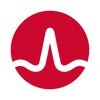
Interview Preparation Tips
Experience: Written test for a duration of 1.5 hours
Test was based on VLSI design
Round: Interview
Experience: Technical and HR round are held together
Digital VLSI - Verilog skills, state machines, setup and hold time issues were tested
General Tips: Some questions in the test are repeated, so it might help to talk to a few people in advance
Questions are mainly related to VLSI mainly-Digital IC design, analog circuits
Skills: Verilog Skills, State Machines, Setup and Hold Times issues
College Name: IIT MADRAS
Interview Preparation Tips
Experience: Test was subjective and questions were asked from basic analog, digital design, VHDL and VLSI circuits.
Round: Technical Interview
Experience: Had 3 technical interviews each around 25 minutes. They asked me about my summer internship and
questions from microcontroller architecture and its interfacing. Then they asked me the questions
from those problems which I didn't attempt in the written test.
Tips: For electrical students, it might be a bit challenging. I took an elective on Microcontroller in 7th sem which
helped me a lot during the interview. You might want to brush up your concepts of 8085, digital, OPAMPs
and analog
Round: HR Interview
Experience: My family background and my future goals were asked. They asked me about
my internship project and wanted to know what I learnt during the internship. Then I asked a few questions
from them about the company work culture and growth opportunities
College Name: IIT Roorkee
Interview Questionnaire
2 Questions
- Q1. Why are you interested in freescale ?
- Ans.
I am interested in Freescale because of their innovative technology and strong reputation in the industry.
Freescale has a history of developing cutting-edge technology
Their reputation in the industry is strong and respected
I am excited about the opportunity to work with a company that values innovation and excellence
- Q2. Hobbies, family background etc. and future plans
Interview Preparation Tips
Total Questions: 15
Round: Technical Interview
Experience: Panel discussed questions attempted incorrectly or not attempted. Topics asked separately: RAM, MOSFET, Memory, Interrupts, FIFO etc.Few puzzles were also asked.
General Tips: Topics that should be covered: Digital Electronics, Microprocessors, Basic Electronics, K Map and FSM questions.
Skills:
College Name: BIT MESRA

Senior Engineer Interview Questions & Answers
TDK India Private Limitedposted on 23 May 2021
Interview Questionnaire
14 Questions
- Q1. 1. Why do you want to change your current job ?
- Q2. 2. What do you know about quality tools ?
- Ans.
Quality tools are techniques used to ensure quality in a product or service.
Quality control charts
Pareto charts
Fishbone diagrams
Histograms
Control charts
Scatter diagrams
Statistical process control
- Q3. What is your biggest professional achievement so far ?
- Q4. Tell my that why a histogram is used....and what is frequency and interval in histogram?
- Ans.
A histogram is used to represent the distribution of numerical data. Frequency is the number of occurrences and interval is the range of values.
Histograms are useful for visualizing data and identifying patterns.
Frequency refers to the number of times a value appears in the data set.
Interval refers to the range of values that are grouped together in the histogram.
Histograms are commonly used in statistics, finance, and...
- Q5. If we do rework of any produced part, which factors get affected by this of OEE?
- Ans.
Rework of produced parts affects the factors of Overall Equipment Efficiency (OEE).
Rework increases the time required to produce a part, reducing the availability factor of OEE.
Rework increases the number of defects, reducing the quality factor of OEE.
Rework increases the amount of scrap or waste, reducing the performance factor of OEE.
Rework can lead to increased downtime for equipment setup and adjustments, reducing ...
- Q6. What is Autonomous maintenance ?
- Ans.
Autonomous maintenance is a maintenance approach where operators take responsibility for routine maintenance tasks.
Operators are trained to perform routine maintenance tasks
Operators conduct inspections and minor repairs
Autonomous maintenance reduces downtime and improves equipment reliability
It also frees up maintenance staff to focus on more complex tasks
- Q7. Why do companies are going for having TPM ?
- Ans.
Companies are going for TPM to improve productivity, reduce downtime, and increase efficiency.
TPM helps in identifying and eliminating equipment failures before they occur
It ensures that equipment is maintained properly and in a timely manner
TPM also helps in reducing the need for emergency repairs and downtime
It improves overall equipment effectiveness and reduces costs
Companies that have implemented TPM have seen sig...
- Q8. Why do you want to relocate ?
- Q9. What is SPC, and what is Cp and Cpk ?
- Ans.
SPC stands for Statistical Process Control. Cp and Cpk are statistical tools used to measure process capability.
SPC is a method of monitoring and controlling a process to ensure it is operating within acceptable limits.
Cp is a measure of how well the process is centered between the upper and lower specification limits.
Cpk is a measure of how well the process is capable of producing within the specification limits.
Cp an...
- Q10. How to calculate OEE?
- Ans.
OEE can be calculated by multiplying Availability, Performance, and Quality percentages.
Calculate Availability by dividing Operating Time by Planned Production Time.
Calculate Performance by dividing Actual Production by Maximum Production.
Calculate Quality by dividing Good Units by Total Units Produced.
Multiply Availability, Performance, and Quality percentages to get OEE.
- Q11. What ardvthe major losses that affects OEE?
- Ans.
Major losses affecting OEE include availability, performance, and quality losses.
Availability losses occur when equipment is not running due to breakdowns, changeovers, or lack of materials.
Performance losses occur when equipment is running below its maximum speed or efficiency.
Quality losses occur when defective products are produced and need to be scrapped or reworked.
Other losses may include startup and shutdown los...
- Q12. What is IATF stands for and what is its current revised name ?
- Ans.
IATF stands for International Automotive Task Force and its current revised name is IATF 16949:2016.
IATF stands for International Automotive Task Force
Its current revised name is IATF 16949:2016
- Q13. What is capacitor and where it is being used ?
- Ans.
A capacitor is an electronic component that stores electrical energy in an electric field. It is used in various electronic circuits.
Capacitors are used to filter out noise and stabilize voltage in power supplies.
They are used in timing circuits, oscillators, and filters.
Capacitors are also used in audio equipment to filter out unwanted frequencies.
They can be found in electronic devices such as TVs, computers, and sma...
- Q14. Why do you prefer working in production dept.?
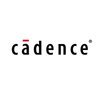
Design Engineer Interview Questions & Answers
Cadence Design Systemsposted on 28 May 2024
I applied via Campus Placement and was interviewed in Nov 2023. There were 2 interview rounds.
(2 Questions)
- Q1. Basic Electronics
- Q2. Basic Electrical
(1 Question)
- Q1. VLSI Designing and CMOS Questions
Interview Preparation Tips
Carl Zeiss Interview FAQs
Tell us how to improve this page.
Carl Zeiss Interviews By Designations
- Carl Zeiss Sales Consultant Interview Questions
- Carl Zeiss Application Specialist Interview Questions
- Carl Zeiss Data Engineer Interview Questions
- Carl Zeiss FSE Interview Questions
- Carl Zeiss Product Manager Interview Questions
- Carl Zeiss Graduate Trainee Interview Questions
- Carl Zeiss Business Analyst Interview Questions
- Carl Zeiss Design Engineer Interview Questions
- Show more
Interview Questions for Popular Designations
- Mechanical Engg. Design Interview Questions
- Senior Design Engineer Interview Questions
- Electrical Design Engineer Interview Questions
- Structural Design Engineer Interview Questions
- Piping Designer Interview Questions
- Auto CAD Designer Interview Questions
- Junior Design Engineer Interview Questions
- Hardware Design Engineer Interview Questions
- Show more
Carl Zeiss Design Engineer Interview Process for Experienced
based on 1 interview
Interview experience
Design Engineer Interview Questions from Similar Companies
Fast track your campus placements
Carl Zeiss Design Engineer Reviews and Ratings
based on 1 review
Rating in categories
|
Sales Associate
88
salaries
| ₹3.3 L/yr - ₹8 L/yr |
|
Sales Specialist
63
salaries
| ₹6 L/yr - ₹16.3 L/yr |
|
Field Service Engineer
44
salaries
| ₹4.8 L/yr - ₹11.5 L/yr |
|
Sales Executive
33
salaries
| ₹1.8 L/yr - ₹9.5 L/yr |
|
Technical Lead
31
salaries
| ₹20 L/yr - ₹36 L/yr |

TDK India Private Limited

Molex

Synopsys

Broadcom
- Home >
- Interviews >
- Carl Zeiss Interview Questions >
- Carl Zeiss Design Engineer Interview Questions for Experienced



